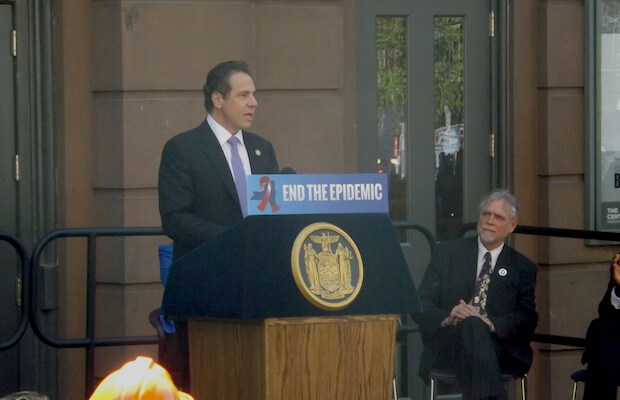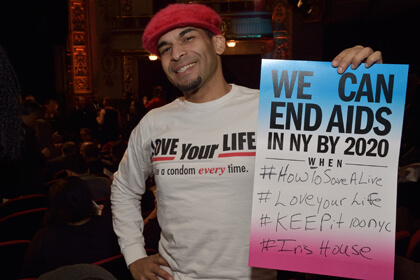Amidst cries of yet another drug crisis, an inflammatory piece in a new California publication, the Pride LA, claims that the combination of meth, PrEP, and orgies is threatening to take away the hard won gains of the gay community and create a “catasTrophe.”
The op-ed is by Charles Kaiser, a respected journalist, historian, and author of a new book about the French resistance to Nazi occupation. He cited little evidence other than quoting from lurid messages on Grindr, Manhunt, and A4A. His conclusion is startlingly unconvincing. After all, anybody can pull excerpts from the Internet and prove anything.
Is the association of meth with barebacking a crisis or just a problem?
The Long View
The public health community has worked with the gay community for years, and the risks of HIV infection are reduced by modern medicine. A poz person on his meds will have “undetectable” levels of HIV and cannot infect others. Unsurprisingly there exists (and have always existed) negative people who want to bareback with poz people. These are not people who necessarily feel “invulnerable.” Some were acutely aware of the risks and worked with groups like Fenway Health in Boston to explore the idea of taking HIV medication to preserve their negative status. From this case-by-case approach instigated by patients at LGBT health programs came the course of treatment called PrEP that cuts off a path to new infection. It is a significant public health advance that will slow increases in new cases of HIV infection. PrEP means there is no crisis.
But in the LGBT community, there is a fear of an “emancipation effect” increasing the number of barebackers. Once again, we shouldn’t listen to our fears. Most new users of this drug don’t jump into the orgy scene. Those who choose relationships and those who do casual couplings and use PrEP do not change their behavior. Gay men are, of course, always joining the group-sex underground, and the growth of this population is provoking a public health concern but no crisis. It is important to remind ourselves that although many players in these arenas are positive, only a few are contagious; again, compliance with HIV treatment by those who are positive reduces their virus to “undetectable” amounts.
Yet some in the gay community downplay PrEP and avidly proselytize their faith in condoms as the only answer. Condoms are excellent — and the only device that prevents STDs like syphilis and gonorrhea. Unhappily, rubbers don’t work for everyone and we have nearly a century of data to prove it. In the 1950s and ‘60s condoms were the only protection available to straight people. If condoms worked as a public health intervention — if there was buy-in across the board by those sexually active — there wouldn’t be teenage pregnancies or STDs. Unwanted pregnancies were a major problem, and medicine confronted the issue by developing the “Pill” for women, which prevented pregnancies, and giving middle class and poor people access to abortions (the rich had abortions even when they were illegal).
It is not gay people who proved that condoms have only limited success, it was straight people, and the public health community is aware of the problem and should be applauded for finding solutions to difficult problems. Kaiser doesn’t acknowledge this progress and perhaps doesn’t even see it.
He believes meth binges of four to five days are common, when in fact they are the exceptions. His concern about that is part of a larger fear that PrEP users will stop their daily doses, making the medication ineffective. We have yet to see this lack of compliance, and even if we do it is doubtful that it will become a crisis. Most PrEP users do not do meth.
An important step that would clarify cause and effect is to understand the nature of the problem. Meth is a drug made by outlaws. It doesn’t have the uniformity and efficacy of pharmaceutical drugs. Drug reformers remind us there is a widespread craving for stimulants in the United States. The market for energy drinks with high jolts of caffeine and for products like 5-hour Energy shows the legal side of this craving. Drug prohibition prevents the sale of medically approved stimulants. Change the laws, and the public health would improve. Legal stimulants would be accompanied by problems, but the objective isn’t life without problems. The goal is making problems manageable.
Kaiser calls for a transformation and reminds us that ACT UP caused a transformation in gay lifestyles and made condom use the norm. He wants this norm restored, but the cat is unlikely to get back in the bag. Gay sex without condoms is possible, and this is an advance not a disaster. The real transformation would be abandoning our hurtful drug laws and allowing users to work with the medical community.


































